Text
it’s like on the other end of the “blood represents femininity/weakness” theme in succession is “piss represents masculinity/strength” which like. Like.
It makes a lot of sense, like, “marking your territory” is a well known example of piss being used like that, right? And men are generally more capable of pissing whenever they want than women (I’m not being transphobic, I’m trans myself, I’m just speaking in the cisheteronormative world of the show)
And it also fits perfectly with the characters! Logan pisses in Kendall’s office to show dominance over him! Roman says he can’t piss in front of other men, symbolizing how he acts too feminine and doesn’t fit neatly into the misogynistic company his dad runs! Lukas pisses on top of the mountain after insulting Kendall and Roman, alluding to how much power he has over them before we even know what his plan is to force the deal through! And Roman refuses to co-sign Shiv’s exposé letter about Kendall because Ken taught him how to aim his “peepee” into the toilet, which tells us that Ken has grown up trying to teach Roman how to fit into the cookie-cutter vision of a “man” that their dad wanted them to be!
And it fits perfectly, and it works so well, but I’m still losing my fucking MIND here because we’re talking about a fucking PISS MOTIF. One of the most explicit and well-executed metaphors for toxic masculinity in one of the greatest shows of our generation is. Is a fucking. Piss motif. I can’t do this anymore bro
143 notes
·
View notes
Text

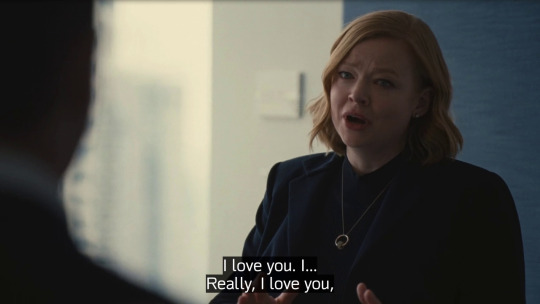



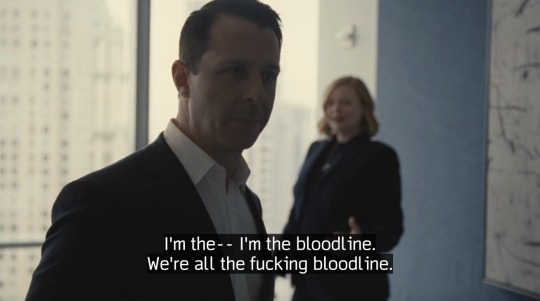

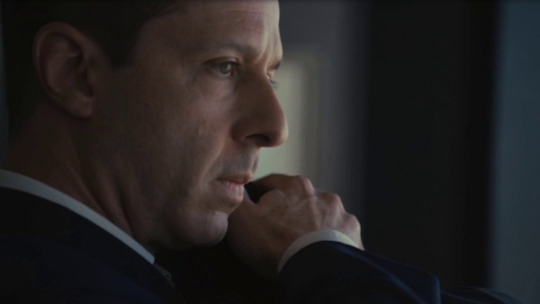
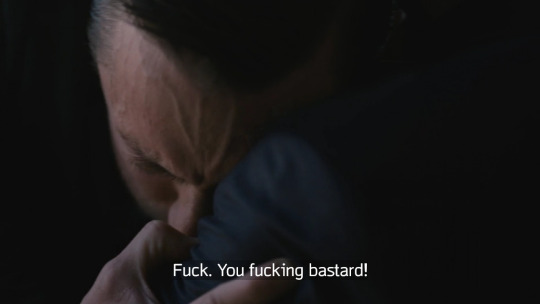
Am I my brother’s keeper?’
In essence, the entire Bible is written as an affirmative response to this question.
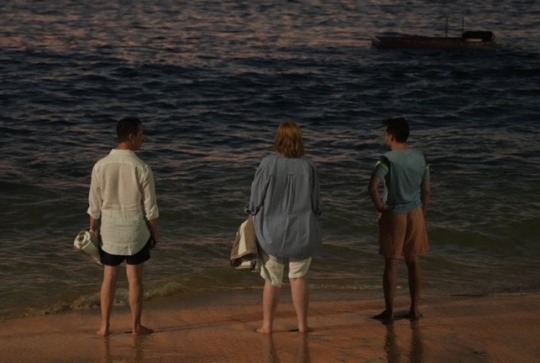
273 notes
·
View notes
Text
me figuring out my feelings about inside in real time
The first time i saw inside (by bo burnham obviously), i watched it like it was a gritty documentary about someone losing their mind, trying to be creative in total isolation. I saw other people react to to the special with concern for bo’s mental health and i thought about it for a moment and realized he actually wasnt isolated (he has a dog and a girlfriend) and he was also doing promo for promising young woman. After realizing this, I thought the whole thing was a fictional movie he made with a team, and i was annoyed by my own need for “authenticity” - why would i feel differently if the special was still the same thing. Now, I think its probably a mix of truth and fiction, but idk i still feel weird about people talking about it like it’s anything other than a movie.
I also fear I am alone in thinking it’s not the best of his specials. Maybe it’s also the fact that i was an enormous fan of his like seven years ago, watching literally everything he’d ever done. I lowkey feel like his demographic has shifted away from fifteen year old girls (something i was when I discovered him).
I also didn;t think it was as dark or depressing as people are saying it was ...? It also wasn’t uplifting in the way i found his other specials and his movie to be, but idk i could relate to a lot of the mental stuff in it but it didn’t neccesarily take me deeper into my anxiety or feelings of worthlessness. and i was envious of the private space he had, and the equipment, and the fact that he could just take longer on a project if he wanted without getting shit for it.
As time ripens my opinion of it, I’m starting to get into the different songs more. One thing I can’t stop thinking about is a line in 30 where he says “your phones are poisoning you!” “When you develop a dissociative mental disorder in your late twenties, don’t come crawling back to me”. Like, he says it in a way where he’s playing up the fact that he sounds old and out of touch, but it also clearly is something he has experienced to some extent (if we are to believe the contents of inside of course). And I read Patricia Lockwood’s No one is talking about this this year which is also about the internet, and obviously i watched 8th grade and idk i am just obsessed with formal art about the internet and all of the ways it’s horrible and all of the ways its mezmerizing and the way you cannot talk about it only describe yourself in it, for the brief periods in which you do feel like you exist. That and the speech he did on the 92nd street y interview about 8th grade, where he basically says it’s no waonder we’re so glued to our phone when the world we have to look up at is this fucking hostile and terrifying
8 notes
·
View notes
Text
It means a lot to me that Patti Harrison is playing a character who is textually cis. I’m not sure why I can’t stop thinking about it, but I can’t stop thinking about it. I just watched the movie (’together together’) and i had to pause a few times because i was distractign myself thinking about it. She’s not super vocal about being trans, so I didn’t even know she was until I saw her in shrill and had to google to make sure. As a transmasc I’m not even sure why I engage so much more with trans women / transfemmes, than I do with transmasculine people (i think it has something to do with just the amount of representation to choose from). It’s just that this is the conversation i’ve been having with people since the fucking danish girl: trans actors can play cis characters and cis actors can play trans characters (provided they have the same gender as the character, because i will not stand for someone who is publicly percieved as a man playing a trans woman (or vice versa) because this plays into the idea that trans women are really men acting like women and trans men are really women acting like men - this is one of the most horrible things to perpetuate. Eddie Redmayne couldve done the best acting anyone has ever done, he is still someone the public knows as a man, playing a trans woman. Anyway anyways, seeing patti harrison in this fucking heartwarming film fucked with me and i would kill myself if she asked me to
0 notes
Text
Why Carl is the best sci fi alien:
Theyre not actually from space
So theres this idea that after pretty much the whole world had been colonized, the stories that center around exploring the great unknown would start being about SPACE: the final frontier. And of course this is very cool and interesting, but it's put earth in the place of being the familiar, homely hobbiton place which we know all too well and might even leave when we (humanity) reach maturity. But we dont know that much about earth at all and its a very surprising, wondrous, cruel and beautiful place which inhabits quintililions of other forms of life with various levels of complexity which we arent always aware of. It is not a stepping stone for humanity, it is a part of humanity as we are a part of it.
The idea that the hyperintelligent unfamiliar entity comes from millions of single cellular organisms being inhabited by one consciousness is cooler than it being a big blue featherless biped from another solar system and it feels more powerful. They aren’t large because they’re a Big Boy, they’re large because they are all around you, participating in your life in ways you cant notice. Their genius isn’t something we don’t have acces to, just something we’ve never had the tools to access.
They are inhuman in many big ways:
No body
Carl doesn't have one body. They describe themselves as an infection, taking up space inside other living beings. They can take control of these beings, but they fo not identify strongly with any physical form. This challenges our idea of conciousness being directly tied to matter and it avoids the (imho) VERY ANNOYING sci-fi trope of an alien basically being a human, but slightly different.
Concrete rules and purpose
Unlike any human Carl has an intrinsic set of rules/values they won't break for anything, they are unable to:
1. They cannot violate our clear norms.
2. They cannot alter our future without us knowing.
They were not taught to abide by these rules, they just do. Following these rules gives them a clearer future than most people, but the rules are ambiguous enough for them to consider the morality (or, to them, lawfullness) of their actions.
Didnt spiring from a pacific culture/household
Carl was not raised by anybody in any specific environment. Though they tell us abou their younger years, they are not shaped by early social connections as humans are. April is the first anything ever whom Carl gets emotionally attached to and they have no idea how to adjust their programming to make them suitable to be a friend. It is very odd, even by sci-fi standards, that Carl doesn’t have a cultural background or any human-ish childhood to speak of and i thionk thats very cool.
They are constantly growing and learning new things
A very human thing about Carl is that they are always just on their way to the next thing and big milestones happen and those are important, but life still goes on. The bit by bit growth of spending time with April and her friends and the books he writes people to try and help them are how they spend most of the story. It never felt like Carl had already arrived at their Carl-est self, just that they wer trying tyheir best with the tools they had - that even if you are a near god, that’s really all you can do.
They love us
In most sci-fi, it is presumed that if a hyper intelligent alien lifeform made contact with us, they would be violent towards us, either because we're bad or because they're bad. Hank Greens books say, through the character of Carl, that the most intelligent being would love us. Because loving us is the most intelligent thing to do. Carl knows everything (ok, not everything, but a lot) about the earth and human civilization and they saw that we are really special and cool, perhaps more so than any other life they've encountered. They said (on page 203): “In my fourth awakening, I realized I was built to love you - all of you.”
I just think its a really bold and awesome statement to say if i were omniscient i would simply cradle you in my arms - I would write you love letters telling you to have breakfast and talk to your friends - if i could heal you , i would; and i hope you'd want me to - if i knew everything there was to know, i would simply love you
(like that goes so fuckin hard !!!!)
#a beautifully foolish endeavor#an absolutely remarkable thing#hank green#Carl#April May#optimism#idk i just cant deal w it like he got so many things right that always annoy me abt aliens in stories#i bet axioms end also had good aliens but i havent gotten started on it yet
13 notes
·
View notes
Text
Come on
Maybe i work at a soup kitchen on the east side and meet a slightly older woman.
Maybe her name is eileen. I annoy her with dexys midnight runners, she annoys me by doing that thing where she taps my right shoulder when shes standing to the left of me and i always fall for it.
Maybe we build up a rapport over months of pouring soup together . We linger around later and later talking to eachother. One night we stay late talking and she invites me over to her appartment because we were talking about tea and talent shows and how we should definitely do a talent show between her teas. So we go to her house, all the tea flavours have different personalities and the judges are two fancy british stereotypes and everytime the tea flavours kiss, we have to kiss (these are the rules) and it turns out the teas kiss eachother a lot. Maybe, against all odds, Rooibos has the T Factor (working title) and gets to be ceremoniously fed to a houseplant. Me and eileen are tired now. Maybe she invites me to stay over, saying: "lets go to sleep" and walks into her bed, holding my hand. Maybe i lay down next to her and kiss her hand and she kisses my mouth and the edge of my cheek and we go on falling asleep, but everytime we’re about to lose our grip on consciousness, we remember to kiss the other in case we wont get to anymore. Idk... maybe?
0 notes
Text
~ ~ b r a v e n e w w o r l d ~ ~ ((dispassionate contentment))
I shall divide my thoughts on this book into four main categories: “I didn’t like it”, “is it actually a utopia?”, “Eugenics” and “oh god hyperconsumerism”. I will be informal, tangential, judgemental, but hopefully entirely factual.
I didn’t like it
The first 100 pages feel completely separate from the rest and are just the most blatant exposition loosely framed in the device of “they were on a tour”. I think there are more engaging ways to start a novel. For example: it can start by introducing the main character as well as the world by having it be about his specific experience, or you can start with a shorter, even dryer text that would be in an in-world pamphlet or something. This way the audience can immediately be immersed in the world and figure things out for themselves, reading outright state propaganda as something unquestionable. But, obviously it isn’t like the book is going to be edited to my preferences after all these years and I don't think mr. Huxley will do anything with the advice either, since he died of laryngeal cancer in 1963.
I also didn’t think any of the characters were sympathetic, either because the pov clearly looked down on them as was with the people who strongly identified with their communities (mostly the mother and Bernard's girlfriend). And the people that were supposed to be taken seriously (i think) were these intellectual men who thought themselves outsiders who could objectively judge the world around them and decide what’s best for everyone (Bernard, John, Galaxy Brian). This is not a type of person I am particularly fond of in the real world and that dislike also extends to the brave new world.
At first, I thought the main character (Bernard) would change and become more chill at some point, but no. He had social anxiety throughout and his coping mechanism was arrogance. I also liked John before he decided to use his life and position to be a raving lunatic by the woods - an understandable, attractive life path, but the implications of it are hopeless. Are you saying the answer to living in a horrifying, dystopian hellscape is to be a thespian recluse, Aldous? Is that really the most productive course of action, Al?
Is it actually a utopia?
As opposed to most “future: bad”-science fiction, most people in the world of Brave New World see their society as a utopia. Only the ragtag gang of angsty male protagonists think of it as being dystopian, which the figures of authority view as a fault of the system. If they have any negative opinion of their society, then clearly the system of indoctrination has failed them. If only society were more tightly controlled, then it really would be a utopia. But we as the audience of course don’t see it as a utopia at all. The industrialization of human bodies makes that everybody only exists for the sake of the Economy. There are no individuals, only society as a whole, serving itself.
But if the average happiness of a member of a society is not the factor by which we determine how desirable a society is, then what is?
Diversity? Brave New World has a diverse range of citizens, though they do look the same for the most part, because they exist in large groups of twins. The different groups are bred to be in different social classes and they are discouraged from identifying with each other. So maybe diversity among social groups is important...
Technological progress? If I remember correctly, Brave New World puts a lot of resources into the advancement of science and technology.
Freedom? The big dystopian science fiction thing that Brave New World gleefully indulges in is *ominous music* TOTALITARIAN GOVERNMENT. In this world, you lose any ability to choose for yourself as you are being produced. Your moral framework, your priorities, your aesthetic taste are decided during your infancy. You do not learn about things you are curious about, but only the things the factory prescribes. Any decision you make after you leave the factory is so heavily decided by the way you’ve been programmed, that it can't be of your own free will however much you think it is. As Huxley himself said: “A really efficient totalitarian state would be one in which [leaders] control a population of slaves who do not have to be coerced, because they love their servitude.”
So, is the purpose of humanity freedom? Idk sure.
Eugenics
Lets start this off by saying that Aldous Huxley was a eugenicist. Here’s a few quotes to support this claim:
“About 99,5% of the entire population of the planet are as stupid and philistine … as the great masses of the English. The important thing, it seems to me, is not to attack the 99,5% ... but to try to see that the 0,5% survives, keeps it’s quality up to the highest possible level, and, if possible, dominates the rest. The imbecility of the 99,5% is appalling - but after all what else can you expect?” - in a letter to J. Glyn Roberts in 1933
“Birth control depends on the co-operation of an entire people. It must be practiced by countless individuals, from whom it demands more intelligence and will power than most of the world's teeming illiterates possess, and (where chemical or mechanical methods of contraception are used) an expenditure of more money than most of these millions can now afford.” - excerpt from Brave New World Revisited in 1958, in a chapter all about how overpopulation is destroying average living conditions. The looming threat of overpopulation is one of the biggest arguments used in favour of eugenic policies, while the most of the problems attributed to overpopulation are actually symptoms of late stage capitalism… am I getting off topic? Anyway, Aldous had shit politics.
I think the premise of the book is largely about taking the best case scenario of full blown population control to its logical conclusion. “Best case scenario” means that he’s leaving the bigotry and enthnic cleansing out of it (yay?). So, the best case scenario is one in which humans have played god so much that individuality is no longer a thing and neither is passion. Because children are no longer created through copulation, people are discouraged from forming long lasting pair bonds. This form of eugenics eradicates the tedious variable of ♥love♥.
Consumerism
And even with everyone being conditioned to be content all the time, they still need to B U Y S T U F F. So, as a means of further pacifying the people, trinkets, sports and spiritual practices are offered as commodities (this doesn’t sound familiar at all). People are not supposed to use things for long amounts of time, so nothing is made to be durable and people are encouraged to use anything once before throwing it away (again, not familiar at all).
The main thing that stuck in my mind after reading this book is that children are conditioned not to enjoy nature. The baby factory puts a lot of effort in overriding our natural instinct of thinking flowers are pretty, because they aren’t profitable enough. I guess I hadn’t really thought about it being in capitalism's favour to distance people from nature as much as possible. This goes along with the fact that it's in capitalism's favour not to think of people as organic beings who are part of a larger ecosystem, because that would mean in hurting nature we also hurt ourselves.
Honestly, the consumerism aspect of this book is too real and I get a bit too despondent thinking about it for a long amount of time. Like, we live in a society where all of our base needs/desires are targeted with advertising for unfulfilling and addictive products to turn a profit for one of, like a few people who also happen to own every flat on kalverstraat and who don’t give a shit the people they’re mooching off of.
6 notes
·
View notes